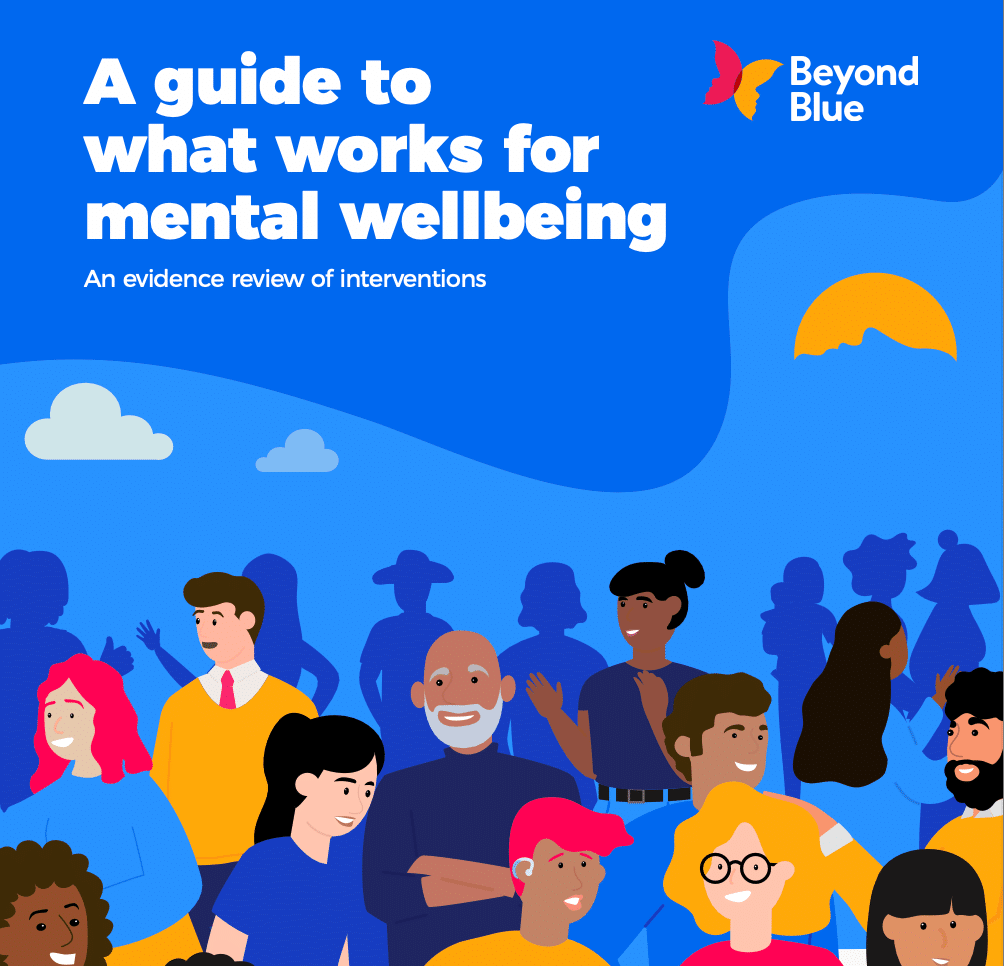In collaboration with Beyond Blue, we created a comprehensive guide summarising evidence-based approaches to improving mental wellbeing.
There is more to mental health than the absence of a mental health condition, such as major depressive disorder. Mental wellbeing is a part of mental health and relates to how we feel and function on a personal and social level, and how we evaluate our lives as a whole. Mental wellbeing is associated with better physical health, improved quality of life, and a reduced risk of developing mental health conditions.
Based on scientific research, the guide identifies interventions with the strongest evidence for improving mental wellbeing:
- Community Connections: Engaging with community and non-medical resources, including social groups, community centres, exercise programs, and volunteering.
- Physical Activity Programs: Activities such as aerobics, weightlifting, walking, or swimming.
- Art-Based Interventions: Creative activities like drawing, painting, music, or drama.
- Acceptance and Commitment Therapy (ACT): A psychotherapy approach teaching mindful and accepting responses to unpleasant thoughts and feelings.
- Cognitive and Cognitive Behavioural Therapy (CBT): Techniques for managing unhelpful thinking patterns that negatively affect wellbeing.
- Mindfulness Techniques: Cultivating awareness and acceptance of their present-moment experiences.
- Positive Psychology Interventions: Increase positive thoughts and feelings by identifying strengths, practicing gratitude, and engaging in acts of kindness.
- Reminiscence Therapy: Reflecting on past experiences and emotions through photos, music, or sharing memories.
This guide identifies the ways scientific research has found we can improve our mental wellbeing.
If you’d like to learn more:
Download the full report here.
Want to Read More?
 Wellbeing
Wellbeing
Do we need to rethink how we think about mental health?
We often treat mental health and mental illness as opposites. If you are not mentally ill, you must be mentally well. If you are struggling, wellbeing must be low. Research suggests it is not… 03 Mar 2026 3 min read Wellbeing, Workplace
Wellbeing, Workplace
Creating psychologically safe teams
Why Psychological Safety matters and how we build it together Based on Be Well Co’s “Psychological Safety for leaders” workshop Psychological safety has become one of the most important foundations of healthy, high-performing teams…. 18 Nov 2025 Wellbeing, Workplace
Wellbeing, Workplace



